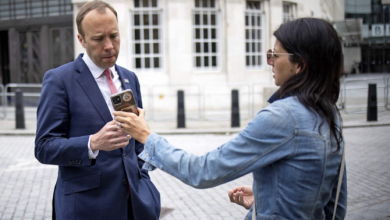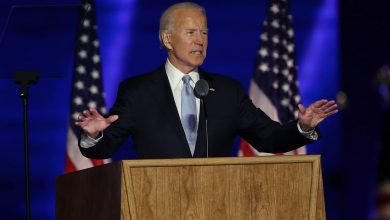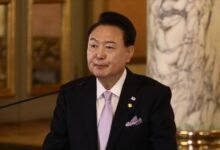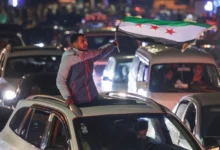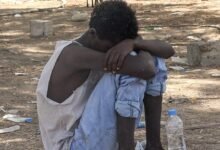international
Malians to elect president amid spiraling violence
[su_label type=”info”]SMA News – Agencies [/su_label][su_spacer size=”10″] In the five years since Malians last chose a president, they have suffered violence from Islamist militants, Tuareg separatists, drug traffickers, ethnic vigilantes and Malian security forces.
Yet when it comes to elections, power has tended to be contested peacefully in the West African republic, and diplomatic pressure is aimed at keeping to keep it that way when its citizens go to the polls on Sunday to decide whether to give President Ibrahim Boubacar Keita a second term or hand the top job to one of his rivals.
“Mali has demonstrated the capacity over the years to deliver credible and peaceful elections,” Mohamed Ibn Chambas, United Nations Special Representative to West Africa and the Sahel region, told Reuters at his office in the Senegalese capital, Dakar.
“My plea is that candidates again show high responsibility,” he added. “We cannot afford a political crisis in Mali on top of the security crisis the country is already facing.”
Eight million people are registered to vote, with polls opening at 8 a.m. (4.00 a.m. ET) and closing at six (1800 GMT).
Keita, 73, universally known as IBK, runs for re-election amid a mounting death toll from jihadist attacks, ethnic killings and armed forces abuses that have become a defining feature of his presidency, despite thousands of French troops deployed since 2013 to contain the violence.
He faces two dozen candidates of which only one, Soumaila Cisse, 68, is seen as having a strong chance of ousting him. Both men are from the Saharan nation’s political elite, and IBK beat Cisse in a run-off at the 2013 poll.
Both held final rallies attracting thousands of people on Friday night.
“There is still a lot to do. That’s why I am soliciting the Malian people to give us another term, not because I’m thirsty for power,” Keita said at a rally on a leafy square on the banks of the Niger river.
“Everywhere I’ve been I see a desire for change. Malians want nothing more to do with this regime,” Cisse told his supporters at his party headquarters.
All candidates have promised to reverse Mali’s decline and help end pervasive poverty. Mali is 14th from the bottom on the U.N. Human Development Index, despite being Africa’s third biggest gold exporter and a major cotton grower.
A billboard in the exhaust fume-choked capital Bamako depicts Keita in flowing white robes and a skull cap, urging Malians to “consolidate the peace.”
Yet since he has been in power, violence has worsened. Civil society website Malilink recorded 932 attacks in the first half of 2018, almost double that for all of 2017 and triple 2015.
In the north, where French troops stepped in to halt a Tuareg rebellion and jihadi takeover before the last poll, jihadists have killed more than 160 U.N. peacekeepers.
Timbuktu, once a Sahara desert tourist spot, is unstable, hit by Islamist militants as well as tensions between Arab and Tuareg traders and black Malians from the south.
Islamist violence has also spread to central Mali, where militants have attacked the pan-regional G5 Sahel force. Killings have begun to take on an ethnic tone, as the Islamists exploit tensions over access to land and water.
Human Rights groups have unearthed evidence that Malian troops were implicated in mass graves in central Mali. The Defence Ministry pledged to investigate.
Keita has played down the country’s security woes.
“There are pockets of violence, residues of terrorism that even (French forces) … haven’t managed to vanquish from Malian soil,” he said after a tour of Mali’s diaspora, one of about 150 costly foreign trips that have been criticised by opponents since he took office.
Yet when it comes to elections, power has tended to be contested peacefully in the West African republic, and diplomatic pressure is aimed at keeping to keep it that way when its citizens go to the polls on Sunday to decide whether to give President Ibrahim Boubacar Keita a second term or hand the top job to one of his rivals.
“Mali has demonstrated the capacity over the years to deliver credible and peaceful elections,” Mohamed Ibn Chambas, United Nations Special Representative to West Africa and the Sahel region, told Reuters at his office in the Senegalese capital, Dakar.
“My plea is that candidates again show high responsibility,” he added. “We cannot afford a political crisis in Mali on top of the security crisis the country is already facing.”
Eight million people are registered to vote, with polls opening at 8 a.m. (4.00 a.m. ET) and closing at six (1800 GMT).
Keita, 73, universally known as IBK, runs for re-election amid a mounting death toll from jihadist attacks, ethnic killings and armed forces abuses that have become a defining feature of his presidency, despite thousands of French troops deployed since 2013 to contain the violence.
He faces two dozen candidates of which only one, Soumaila Cisse, 68, is seen as having a strong chance of ousting him. Both men are from the Saharan nation’s political elite, and IBK beat Cisse in a run-off at the 2013 poll.
Both held final rallies attracting thousands of people on Friday night.
“There is still a lot to do. That’s why I am soliciting the Malian people to give us another term, not because I’m thirsty for power,” Keita said at a rally on a leafy square on the banks of the Niger river.
“Everywhere I’ve been I see a desire for change. Malians want nothing more to do with this regime,” Cisse told his supporters at his party headquarters.
All candidates have promised to reverse Mali’s decline and help end pervasive poverty. Mali is 14th from the bottom on the U.N. Human Development Index, despite being Africa’s third biggest gold exporter and a major cotton grower.
A billboard in the exhaust fume-choked capital Bamako depicts Keita in flowing white robes and a skull cap, urging Malians to “consolidate the peace.”
Yet since he has been in power, violence has worsened. Civil society website Malilink recorded 932 attacks in the first half of 2018, almost double that for all of 2017 and triple 2015.
In the north, where French troops stepped in to halt a Tuareg rebellion and jihadi takeover before the last poll, jihadists have killed more than 160 U.N. peacekeepers.
Timbuktu, once a Sahara desert tourist spot, is unstable, hit by Islamist militants as well as tensions between Arab and Tuareg traders and black Malians from the south.
Islamist violence has also spread to central Mali, where militants have attacked the pan-regional G5 Sahel force. Killings have begun to take on an ethnic tone, as the Islamists exploit tensions over access to land and water.
Human Rights groups have unearthed evidence that Malian troops were implicated in mass graves in central Mali. The Defence Ministry pledged to investigate.
Keita has played down the country’s security woes.
“There are pockets of violence, residues of terrorism that even (French forces) … haven’t managed to vanquish from Malian soil,” he said after a tour of Mali’s diaspora, one of about 150 costly foreign trips that have been criticised by opponents since he took office.



